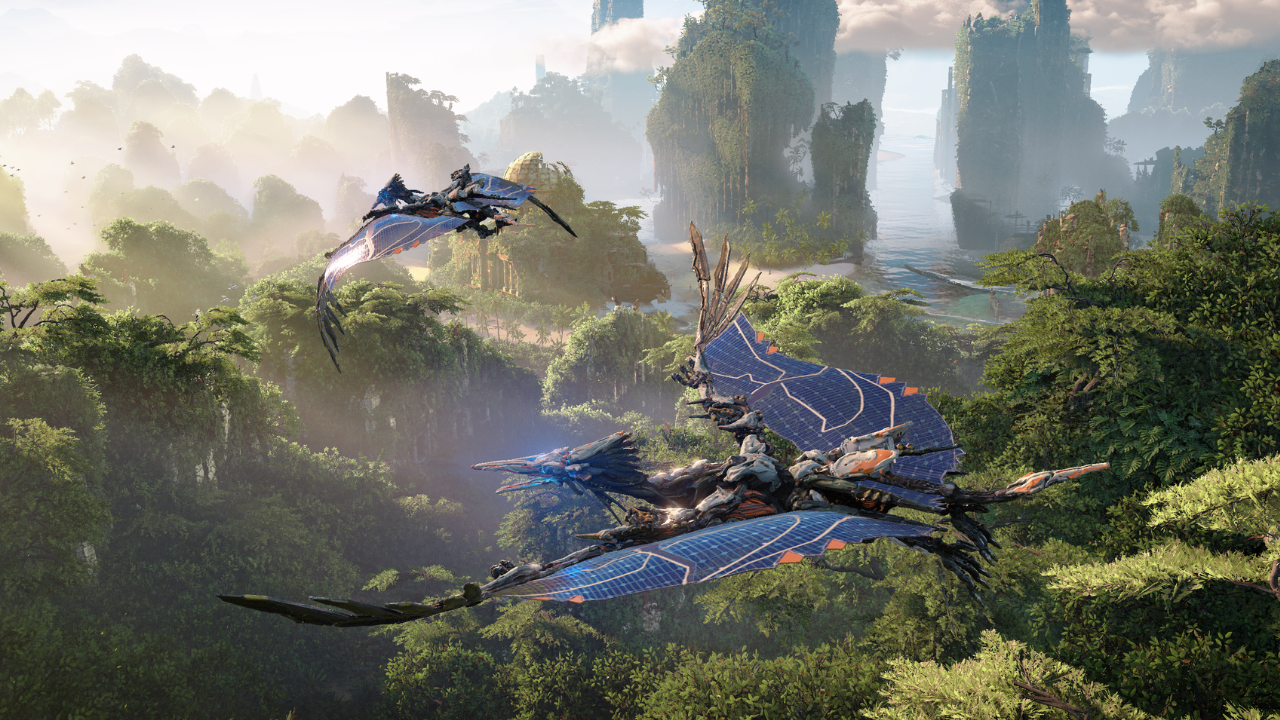Chinese tech conglomerate Tencent is swiping back at Sony after the latter filed a lawsuit alleging Tencent released a “slavish clone” of its Horizon games. In the suit, filed in July 2025, Sony claims that Light of Motiram, a game from Tencent subsidiary Polaris Quest, contains “blatant” and “unlawful” Horizon look-alikes, down to the game’s red-haired female protagonist. According to The Game Post, Sony’s filing framed Tencent’s release as its attempt to ride Horizon‘s coattails.
The suit also alleges Sony declined Tencent’s attempt to collaborate on a new Horizon game. Sony claims, however, that Tencent ignored Sony’s rejection and made a Horizon-like anyway.
Tencent’s Statement

On Thursday, Tencent filed a motion to dismiss the suit. In the filing, Tencent claims that Sony has overstepped, and “seeks an impermissible monopoly on genre conventions.” The company didn’t mince words in its lengthy response:
“Plaintiff Sony has sued a grab-bag of Tencent companies—and ten unnamed defendants— about the unreleased video game Light of Motiram, alleging that the game copies elements from Sony’s game Horizon Zero Dawn and its spinoffs.
“At bottom, Sony’s effort is not aimed at fighting off piracy, plagiarism, or any genuine threat to intellectual property. It is an improper attempt to fence off a well-trodden corner of popular culture and declare it Sony’s exclusive domain. In Sony’s telling, Horizon Zero Dawn is ‘like no fictional world created before [or] since.’ […] That claim is startling, because it is flatly contradicted by Sony’s own developers, not to mention the long history of video games featuring the same elements that Sony seeks to monopolize through this lawsuit.”

Tencent also alleges that Sony took elements from earlier releases and incorporated them into their Horizon projects:
“Long before this lawsuit was filed, the developers of Horizon Zero Dawn publicly acknowledged that the very same game elements that, today, Sony claims to own exclusively, were in fact borrowed from an earlier game. In a behind-the-scenes documentary, the art director for Horizon Zero Dawn, Jan-Bart Van Beek, explained that the game’s core conceit—an intrepid, redhaired woman navigating the ruins of a shattered civilization overrun by robotic beasts—had already been executed by a different video game studio in the 2013 title Enslaved: Odyssey to the West.”
Tencent says that, ultimately, Sony’s lawsuit is invalid and entirely speculative. “None of the served defendants develop and market the Light of Motiram video game that Sony alleges infringes its intellectual property in the Horizon franchise,” Tencent says. Tencent also says Sony’s litigation targets the incorrect entity. Sony sued Tencent America, Proxima Beta U.S., and Tencent Holdings, but the Chinese company says that “[n]one of the served defendants develop and market” the alleged clone. Light of Motiram is being developed by Polaris Quest and Proxima Beta PTE Ltd., which are based in China and Singapore, respectively.
Corporate Overreach Concerns
Concerns regarding corporate overreach in gaming are already being shared across social media. Last week, Nintendo‘s controversial gameplay mechanics patent stirred anger and fear in casual players and industry professionals. The filing — U.S. Patent No. 12,403,397 — was first filed by Nintendo and The Pokémon Company in 2023, and was approved by the U.S. Patent and Trademark Office on September 2.
The patent doesn’t apply to Pokémon elements specifically, like Poké Balls, but summon-and-fight gameplay mechanics by and large (think Pokémon battles, but how they work rather than characters, locations, art, and the like). The patent is concerning enough on its own, but its ultra-vague wording could pose problems for independent studios that cannot afford to stand toe-to-toe with big-time tech titans like Nintendo. Opponents of the brow-raising patent and other predatory competition-quashing practices are often used maliciously. Michael Douse, publishing director at Baldur’s Gate 3‘s Larian Studios, said such patents are “too often used in bad faith.”
Light of Motiram is scheduled for release sometime in Q4 2027.
This is a developing story.
Follow us on MSN for more content you love.



